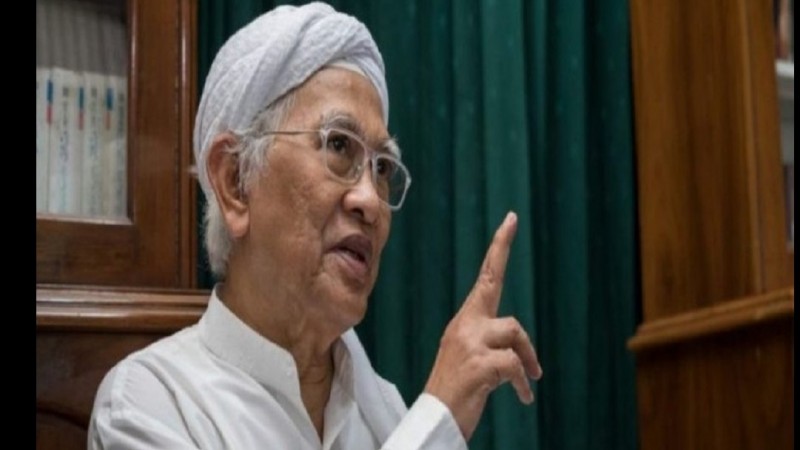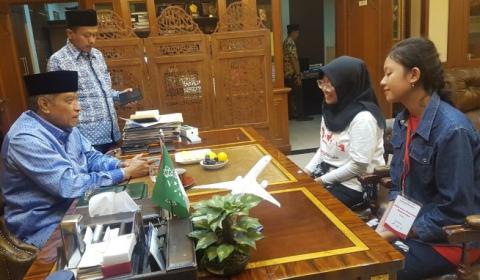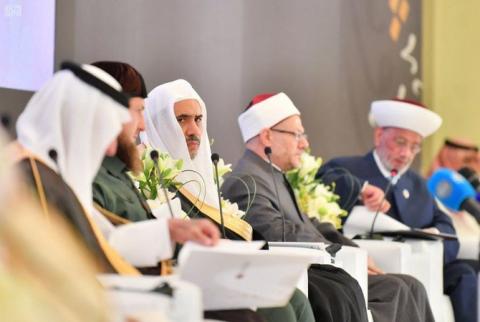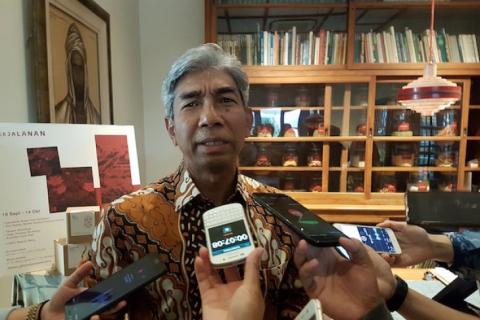Gus Mus: Accepting peace doesn't mean weakness
NU Online · Rabu, 29 September 2021 | 03:37 WIB
Jakarta, NU Online
The Advisory Board member (Mustasyar) of the Central Board of Nahdlatul Ulama (PBNU) KH Musthofa Bisri, popularly known as Gus Mus, said that people who could accept peace from a dispute does not mean that they are showing a weak and contemptible attitude. On the contrary, it is a noble and honorable character.
"People who want to accept peace don't mean they are weak, people who want to accept peace made by a just peacemaker, if they want to accept it, it shows that he is an honorable person, a noble person," Gus Mus said when explaining the content of hadith in a religious gahtering that was broadcast on the Gus Mus Youtube channel, Tuesday (28/9/2021).
In the video, which is tagged with the Jimat Gus Mus tagline, he explained that the person who apologized as well as the person who forgave did not mean showing a weak attitude. Because, asking or apologizing to others required courage to express it.
“Sometimes people think that the person who apologizes is a weak person, the proof is apologizing. Weak people are like that, just digitizing it he/she already forgives. (the assumption) is wrong,” Gus Mus said, adding the advice to reconcile the two parties who are in dispute and stated that the growing desire for peace is a sign of tolerance in a person.
“People who are reconciled when they want to make peace, it's because they themselves have a sense of tolerance. If there is no tolerance, we will continue to be angry," he explained.
Gus Mus added that one of the good traditions in the archipelago was to apologize to each other, especially during the (Idul Fitri) holidays. Traditions like this, according to Gus Mus, can be used as an opportunity to grow courage in expressing and conveying apologies to others.
"Now there is a new model, ahead of Ramadan (people want) to apologize, ahead of Sya'ban (people) want to apologize, that's good. It makes people dare to apologize,” the leader of the Raudlatut Thalibin Islamic Boarding School, Rembang, said.
Gus Mus also conveyed other explanations in the content of the hadith that he read, including the importance of having compassion for people who have debts, such as reducing the burden of their debts or providing tolerance for payment times.
"If you give someone a debt, that person looks very difficult, you don't need to press him, give him time," he added.
In addition, Gus Mus also conveyed the strict prohibition against taking an oath to leave good deeds, as stated in Surah An-Nur verse 22.
Reporter: Aiz Lutfi
Editor: Sudarto Murtaufiq
Terpopuler
1
Khutbah Jumat: Ramadhan dan Kesempatan yang Tidak Selalu Terulang
2
Keluar Mani yang Tidak dan Membatalkan Puasa
3
Khutbah Jumat: Ramadhan, Melatih Sabar, Memperkuat Syukur
4
Khutbah Jumat: Tiga Kebahagiaan Orang Puasa
5
Kultum Ramadhan: Keutamaan Tarawih dan Witir
6
Khutbah Jumat: 4 Cara Menghidupkan Malam Ramadhan dengan Ibadah
Terkini
Lihat Semua






















